In recent years, the emergence of Artificial Intelligence (AI) has changed the way people live, work, and think. With a wide range of industry verticals, AI-based solutions companies’ are transforming the Indian business landscape.
Indian AI Market Highlights
- The Global AI market is estimated to be worth $59.67 billion in 2021 and is projected to grow at a CAGR of 39.4% to reach $422.37 billion by 2028.
- NASSCOM estimates that AI will contribute $ 450–500 billion to India’s GDP by 2025, which is 10% of the country’s targeted 5 trillion $ GDP.
- The AI market in India is estimated to be worth $7.8 billion by 2025, up from $3.1 billion in 2020 with a CAGR of 20.2%.
- The number of AI start-ups has increased fourteen-fold since 2000.
Industries such as IT, financial services, telecommunications and media, and retail, which are highly digitized, have been the pioneering adopters of AI. The level and scope of AI adoption, however, vary according to the industry.
In this blog, we will explore the deals that went through during Q4 2021 till Q3 2022 of all the AI-based solutions in India. Measured criteria are company stages, investor types, locations, mega deals, keywords, revenue vs valuation, and company growth in two years.

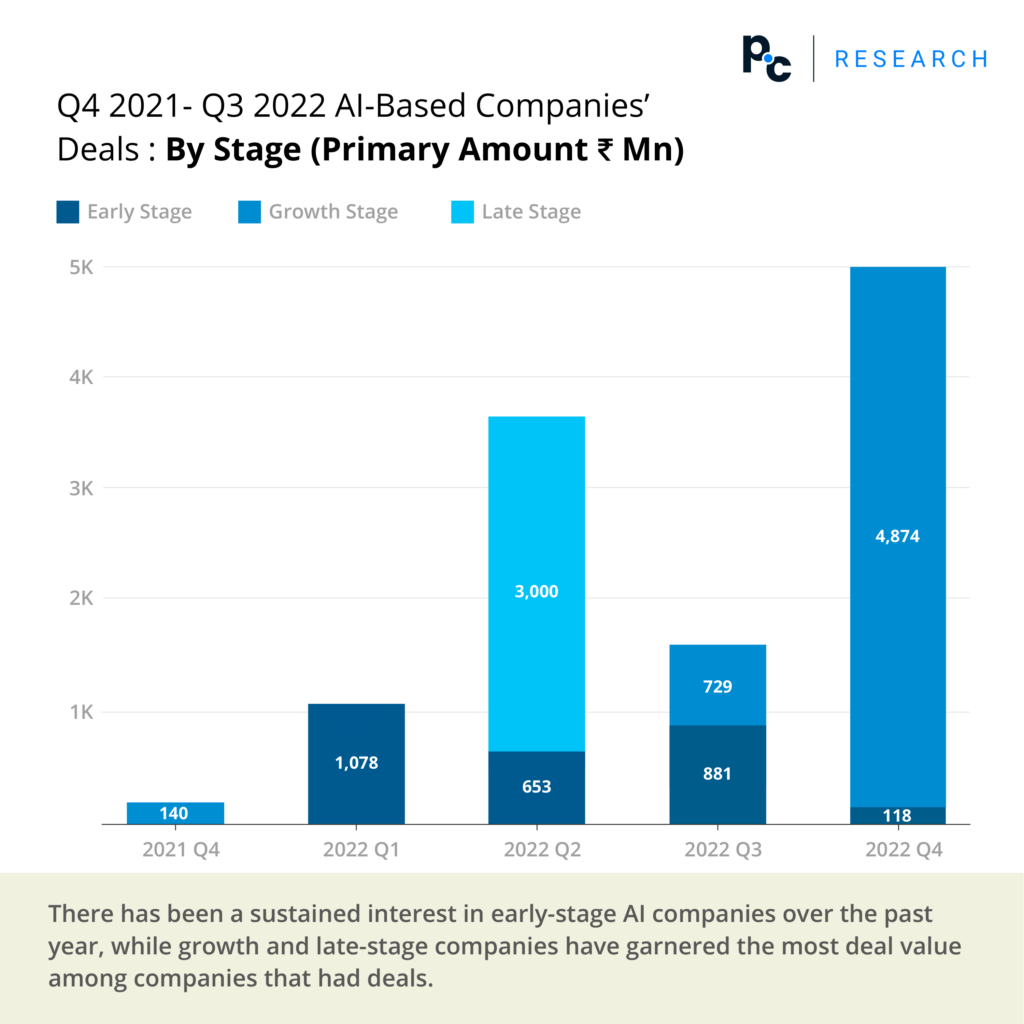
Early-stage startups focus on building products that leverage AI to solve existing problems, while later-stage startups leverage AI to create new products and services. Startups are also exploring ways to use AI to improve existing products and services, which is helping them to expand their customer base and reach. With the right resources and support, these startups have the potential to become major players in the AI space in India.
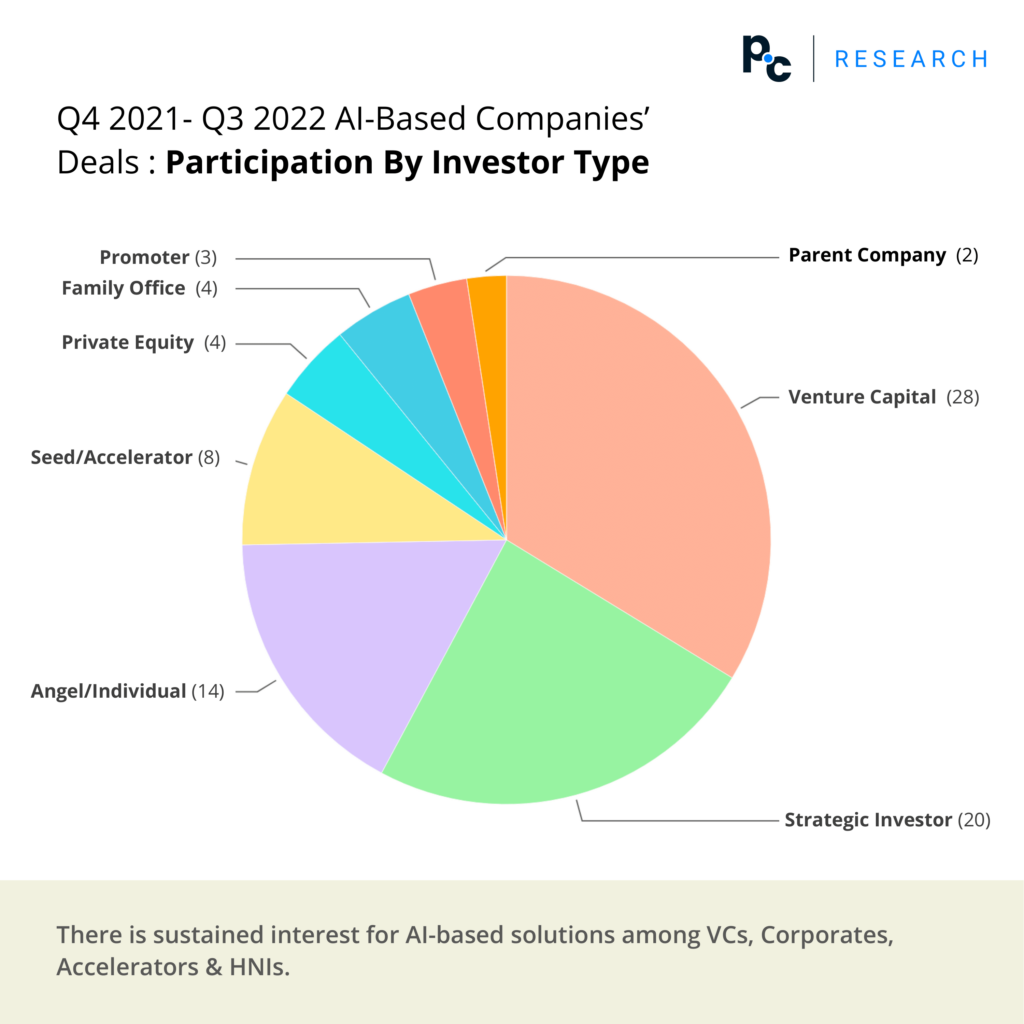
The largest involvement is seen from venture capitalists, followed by strategic investors, angel/individual investors, seed/accelerators, private equity, family offices, promoters, and the parent companies themselves.
From healthcare to finance, and even retail, AI-based solutions offer immense potential for growth and development in India, and investors are keen to capitalize on this.
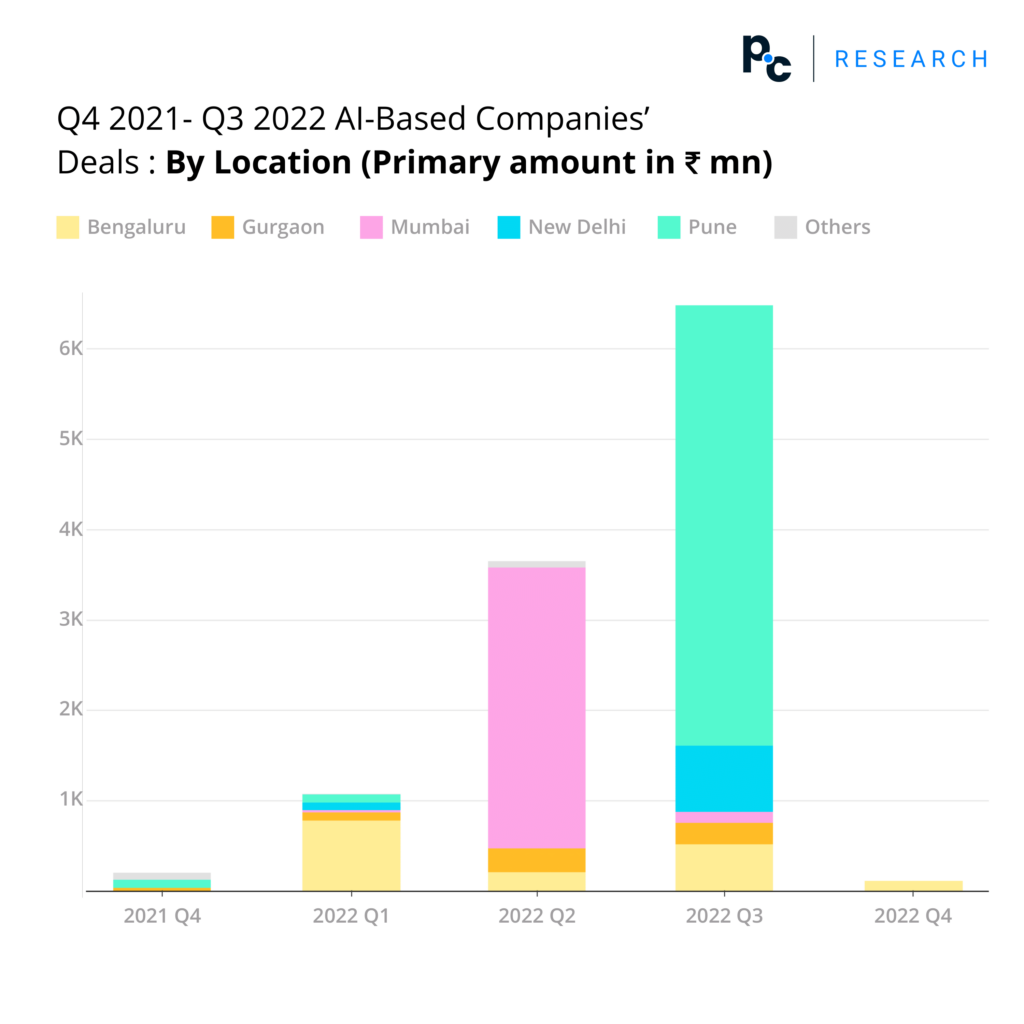

These startups are working to improve the healthcare, automotive, and banking industries, as well as developing AI-based solutions for customer service, facial recognition, and predictive analytics. Each of these startups has unique strengths and positions itself in different areas of the AI industry.
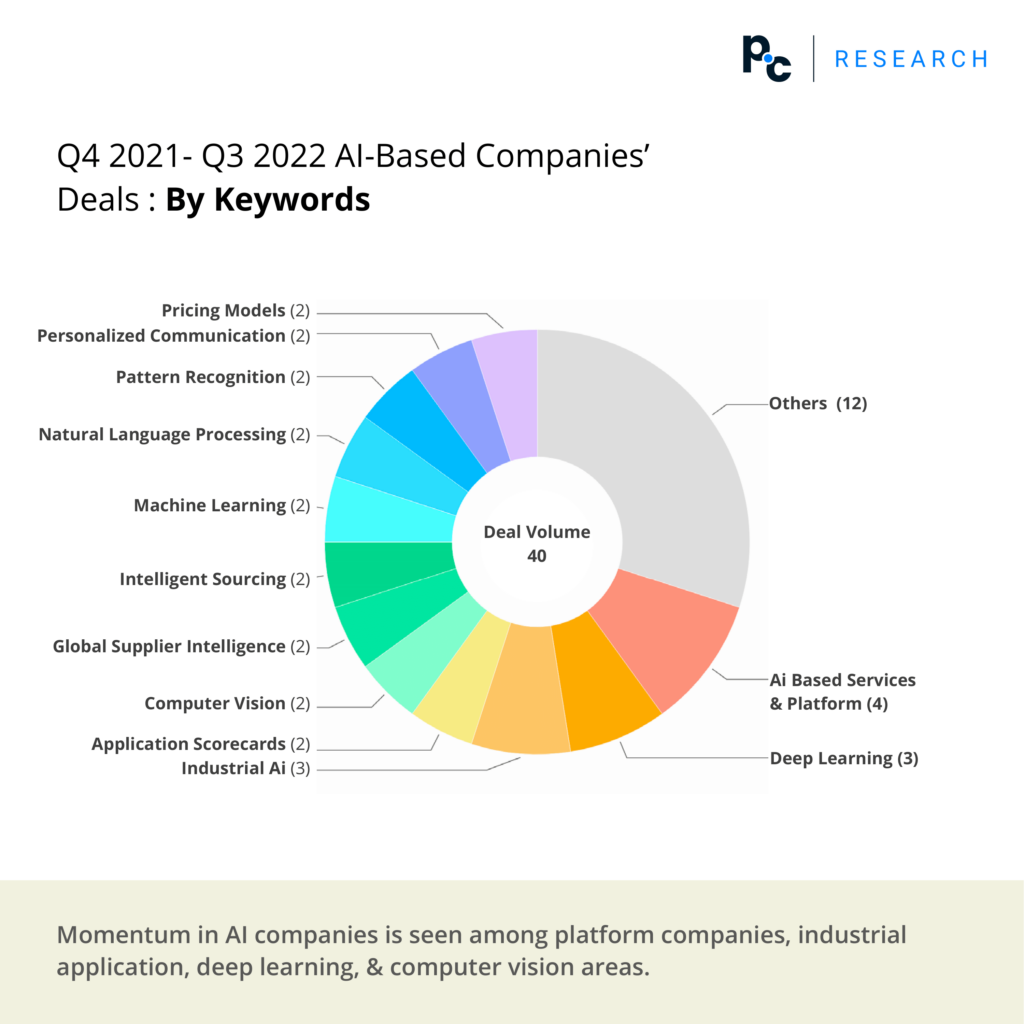
Multiple AI-based applications are used for image recognition, natural language processing, and automated decision-making. Deep learning, a subset of AI, is applied to develop predictive models for various applications, such as banking and financial services, healthcare, and manufacturing.
Industrial AI is used to improve operational efficiency, reduce costs, and enhance customer experiences. Application scorecards are used to measure the performance of AI-based applications. Computer vision is used for facial recognition, object detection, and image classification. Global supplier intelligence is used to optimize supply chains and improve business performance. Intelligent sourcing is used to identify and select the best suppliers in a cost-effective manner.
Machine learning helps in developing predictive models for a range of applications, such as fraud detection, customer segmentation, and sales forecasting. Natural language processing is used for text mining, sentiment analysis, and automated customer support. Pattern recognition is used to detect patterns in large datasets and make predictions. Personalized communication is used to deliver tailored experiences to customers.
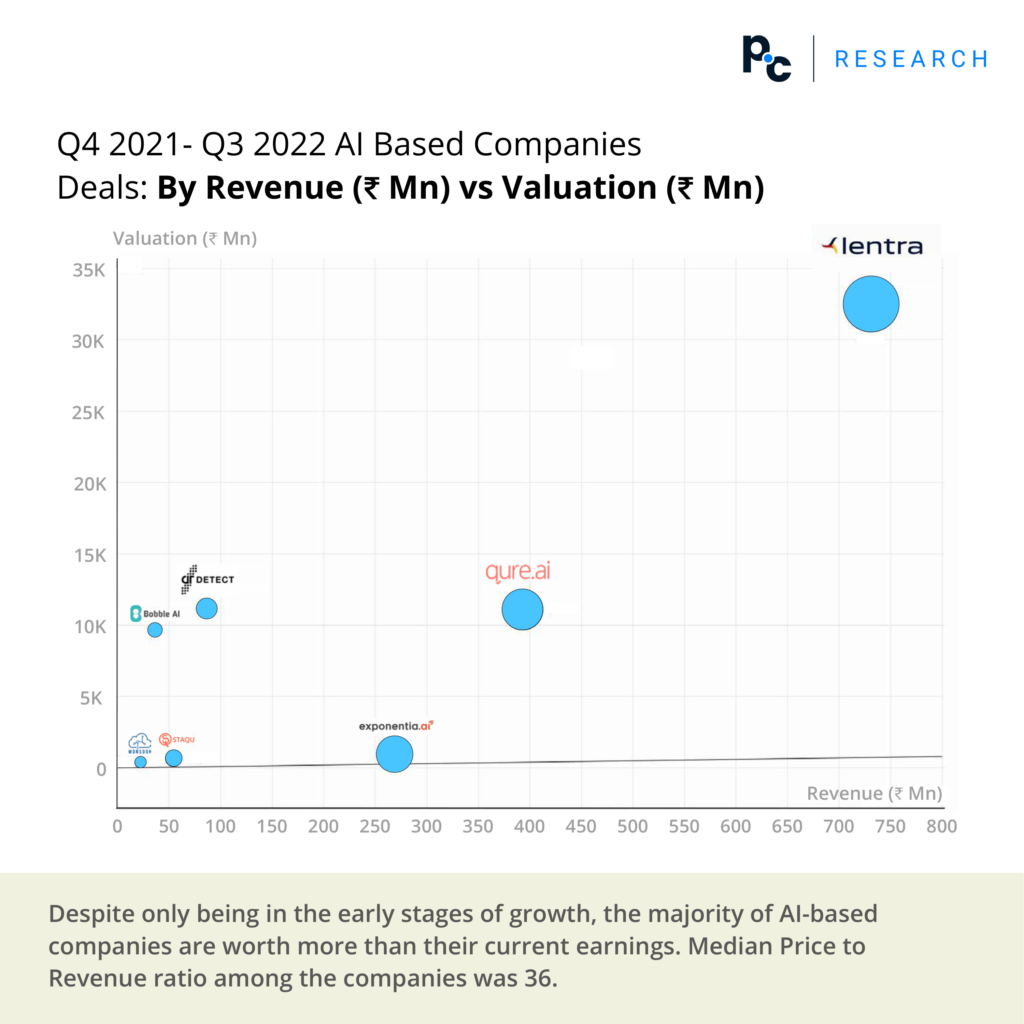
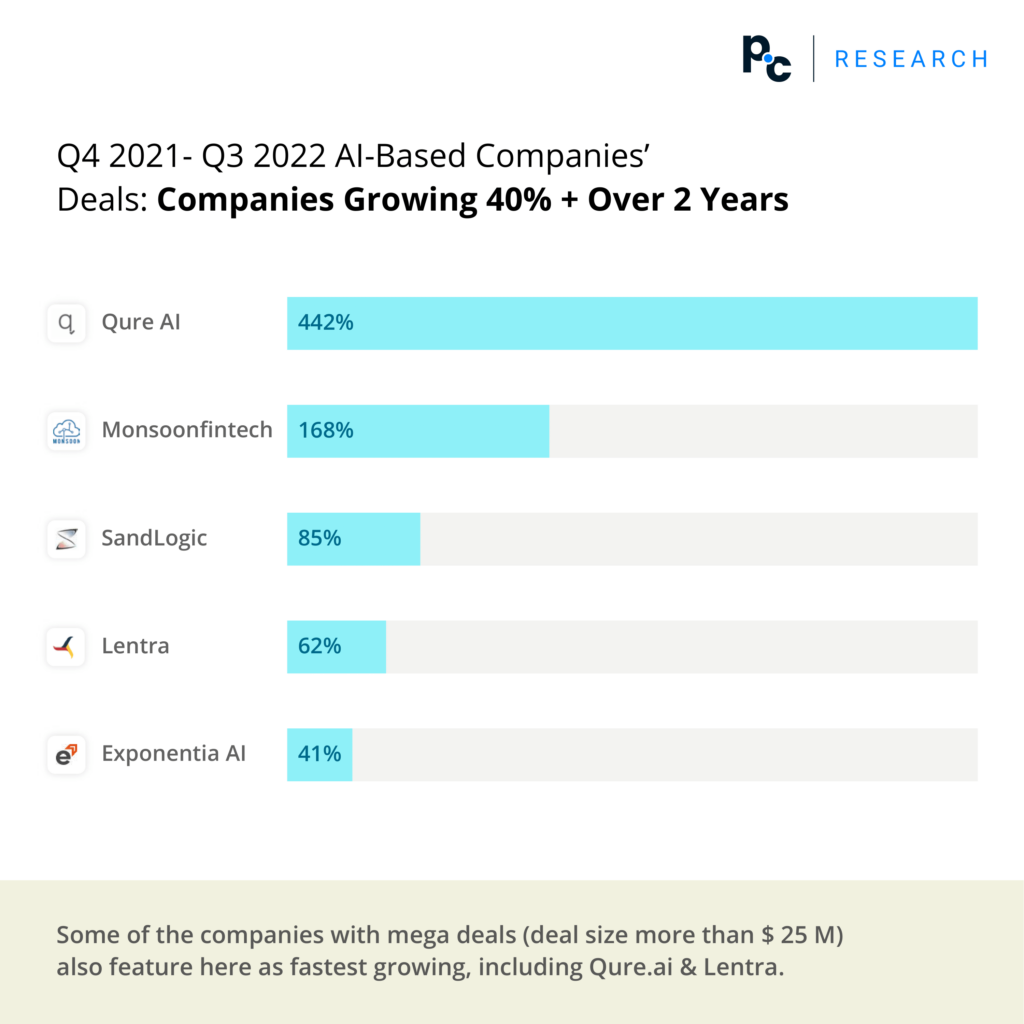

For more industry-specific summaries, reports, and everything else you need for business and capital growth, get onboard privatecircle.co.
References
https://www.gmiresearch.com/report/india-ai-market/toc
https://analyticsindiamag.com/two-decades-of-ai-where-does-india-stand-today%EF%BF%BC/
